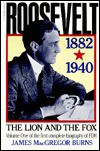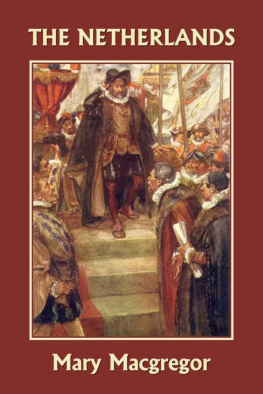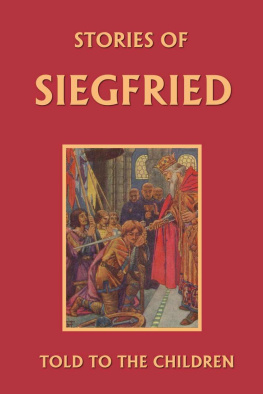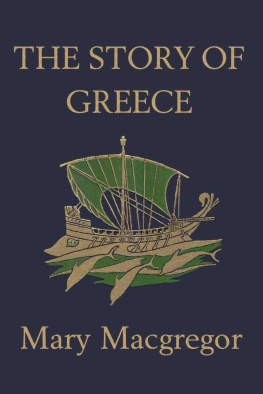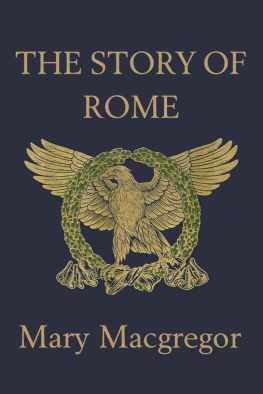ROUTLEDGE LIBRARY EDITIONS: FOLKLORE
Volume 2
BRAZILIAN FOLK NARRATIVE SCHOLARSHIP
BRAZILIAN FOLK NARRATIVE SCHOLARSHIP
A Critical Survey and Selective Annotated Bibliography
MARY MACGREGOR-VILLARREAL
First published in 1994
This edition first published in 2015
by Routledge
2 Park Square, Milton Park, Abingdon, Oxon, OX14 4RN
and by Routledge
711 Third Avenue, New York, NY 10017
Routledge is an imprint of the Taylor & Francis Group, an informa business
1994 Mary MacGregor-Villarreal
All rights reserved. No part of this book may be reprinted or reproduced or utilised in any form or by any electronic, mechanical, or other means, now known or hereafter invented, including photocopying and recording, or in any information storage or retrieval system, without permission in writing from the publishers.
Trademark notice: Product or corporate names may be trademarks or registered trademarks, and are used only for identification and explanation without intent to infringe.
British Library Cataloguing in Publication Data
A catalogue record for this book is available from the British Library
ISBN: 978-1-138-84217-5 (Set)
eISBN: 978-1-315-72831-5 (Set)
ISBN: 978-1-138-84243-4 (Volume 2)
eISBN: 978-1-315-73147-6 (Volume 2)
Publishers Note
The publisher has gone to great lengths to ensure the quality of this reprint but points out that some imperfections in the original copies may be apparent.
Disclaimer
The publisher has made every effort to trace copyright holders and would welcome correspondence from those they have been unable to trace.
BRAZILIAN FOLK NARRATIVE SCHOLARSHIP
A Critical Survey and Selective Annotated Bibliography
Mary MacGregor-Villarreal
Copyright 1994 by Mary MacGregor-Villarreal All rights reserved
Library of Congress Cataloging-in-Publication Data
MacGregor-Villarreal, Mary.
Brazilian folk narrative scholarship : a critical survey and selective annotated bibliography / Mary MacGregor Villarreal.
p. cm. (Garland reference library of the humanities ; vol. 1683) (Garland folklore library : vol. 8)
Originally presented as the authors thesis (Ph.D.)University of California at Los Angeles, 1981.
Includes bibliographical references.
ISBN 0-8153-1243-1
1. FolkloreBrazilBibliography. 2. BrazilSocial life and customsBibliography. I. Title. II. Series. III. Series : Garland folklore library ; 8.
Z5984.B7M25 1994
016.39820981dc20
94-20707
CIP
Printed on acid-free, 250-year-life paper Manufactured in the United States of America
Contents
The Garland Folklore Library series consists primarily of meritorious masters theses and deserving doctoral dissertations in the field of folklore which for one reason or another were not published upon their initial completion. In theory, all theses and dissertations are supposed to be contributions to the collective knowledge of a given discipline, but in practice it seems the vast majority are simply filed and forgotten. Sometimes the dissertation is too technical; sometimes it is too long for it to be welcomed for publication by cost-conscious university presses. Sometimes the dissertation is eminently publishable, but its author by the time the dissertation is finished is so heartily sick of the subject that he or she wants to put it aside forever.
In any case, there are a number of outstanding dissertations in folklore which warrant a wider readership and which belong in the library of any educational institution or individual with a serious interest in folklore. A few of these are in fact already well known to professional folklorists who may have bothered to send for them through inter-library loan or in more recent times purchased copies from University Microfilms International in Ann Arbor, Michigan. However, it should be noted that not all dissertations are available through UMI. The appearance of selected folklore dissertations and theses, both old and new, in the Garland Folklore Library series will make it much easier for libraries and individuals to obtain these significant studies.
Among the most important hitherto unpublished folklore dissertations are such works as motif and/or tale type indices, historic-geographic (comparative) in-depth studies of single folktales or ballads, and surveys of specialized folklore scholarship, e.g., of a particular country or group. There are in addition valuable field collections of folklore data to be found in dissertations. Clearly, there is no dearth of dissertations in folklore which could and should be published. Folklore field data, for example, never ceases to be of valueeven years after its collection. It is the intention of the Garland Folklore Library series to make a number of folklore theses and dissertations available to the growing worldwide community of folklorists.
Generally speaking, folklorists in Latin America, like their counterparts in North America, have tended to be followers rather than leaders. Most of the theoretical concepts and methodological practices employed by folklorists in the Americas tend to come from Europe, where the discipline of folkloristics may be said to have begun in the late eighteenth century. On the other hand, there has been considerable scholarship devoted to folklore in the New World. In Latin America, it has been notably folklorists in Argentina and Brazil who have been concerned with folklore theory and method. (For a sample of the rich literature in Argentina, see Cceres Freyre 1942; Vega 1945; Carrizo 1953; Flury 1959; and Blache and Morentin 1980.) This is not to deny that there have been major folklorists elsewhere in Latin America (cf. Merino de Zela 1987)for Mexico see Romero 1947, for Venezuela see Acosta Saignes 1967, for an appreciation of the great Chilean pioneer Rodolfo Lenz, see Contreras 1989but only to acknowledge the remarkable theoretical writings of Argentinean and Brazilian folklorists, writings which are virtually unknown in Europe.
The study of folklore in Brazil should be of particular interest to folklorists in the United States inasmuch as Brazil is home to native American traditions, African-American traditions, European-American traditions, Asian-American traditions, and of course, unique traditions which have sprung up in Brazil. This situation is analogous to that prevailing in the United States and Canada.
For those folklorists with a special interest in folk narrative, Latin American scholarship is particularly significant. The theoretical writings on South American Indian folk narrative, for example, are impressive indeed (cf. Niles 1981) even if one excludes the voluminous literature created by Lvi-Strauss and his followers (cf. Lapointe and Lapointe 1977 for an early listing of sources). Of course, much of the discussion of folk narrative in Latin America is written in Spanish or Portuguese, and is therefore not easily accessible to European, Asian and American scholars who cannot read these languages.
Non-readers of Portuguese will have reason to be grateful to Mary MacGregor-Villarreal for her comprehensive survey of Brazilian folk narrative scholarship as it makes available for the first time in English the results of a century or so of research. Born in Los Angeles in 1946, Dr. MacGregor-Villarreal attended the University of California, Santa Barbara, for two years before graduating with a B.A. in Anthropology from the University of California, Santa Cruz, in 1968. It was after that degree that she began to become familiar with Brazil. She served as a Peace Corps Volunteer in Minas Gerais from 1968 to 1970. Following her service, she went back to school, earning an M.A. in Latin American Studies at UCLA in 1973. Fortunately, she discovered the field of folklore and received her doctorate in Folklore and Mythology at UCLA in 1981, specializing in narrative and ethnography in Latin America with an emphasis on Brazil. Since that time, she has worked at the Southwest Museum in Los Angeles (19891992) and has taught. A visiting professor of folklore and Spanish at UCLA in 1986, she is currently employed (19931994) by the Pasadena Unified School District.





